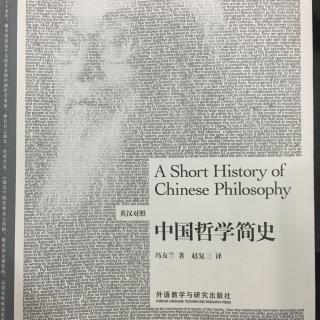- 苦练Python第9天:if-else分支九剑
python后端前端人工智能
苦练Python第9天:if-else分支九剑前言大家好,我是倔强青铜三。是一名热情的软件工程师,我热衷于分享和传播IT技术,致力于通过我的知识和技能推动技术交流与创新,欢迎关注我,微信公众号:倔强青铜三。欢迎点赞、收藏、关注,一键三连!!!欢迎来到100天Python挑战第9天!今天我们不练循环,改磨“分支剑法”——ifelse三式:单分支、双分支、多分支,以及嵌套和三元运算符,全部实战演练,让
- Flutter——数据库Drift开发详细教程之迁移(九)
怀君
flutterflutter数据库
迁移入门引导式迁移配置用法例子切换到make-migrations开发过程中手动迁移迁移后回调导出模式导出架构下一步是什么?调试导出架构的问题修复这个问题架构迁移助手自定义分步迁移转向逐步迁移手动生成测试迁移编写测试验证数据完整性在运行时验证数据库模式迁移器API一般提示迁移视图、触发器和索引复杂的迁移更改列的类型更改列约束删除列重命名列合并列添加新列入门Drift通过严格的架构确保查询类型安全。
- Java实习模拟面试之安徽九德 —— 面向对象编程、Spring框架与数据库技术详解
培风图南以星河揽胜
java面试java面试spring
关键词:Java实习生、模拟面试、安徽九德、SpringBoot、MySQL、Redis、面向对象编程、团队协作一、前言作为一名计算机相关专业的学生,想要顺利进入一家互联网公司或软件开发企业实习,技术面试是必须面对的一道门槛。本文将带你走进一场真实的Java实习生模拟面试场景,以“安徽九德”公司为背景,围绕其发布的招聘岗位要求,进行一次全方位的技术面试演练。本次模拟面试涵盖以下核心知识点:Java
- 【服务器】Ubuntu、CentOS、Debian、Alibaba Cloud Linux等操作系统有什么不同?
Ubuntu目标用户:Ubuntu适合初学者和对图形界面友好的用户,也适用于开发人员和需要最新软件的企业。更新策略:Ubuntu提供长期支持版本(LTS),每两年发布一次,并提供五年的支持。非LTS版本每六个月发布一次,但仅提供九个月的支持。包管理系统:使用APT包管理系统,拥有庞大的软件仓库。社区支持:拥有非常活跃的开发者社区,提供了丰富的文档和第三方资源。稳定性与创新性:在保持稳定的同时,Ub
- 【Kafka】Failed to send data to Kafka: Expiring 30 record(s) for xxx 732453 ms has passed since last
九师兄
kafkabigdatazookeeper
文章目录1.美图2.背景2.尝试方案13.尝试解决24.场景再现25.场景46.场景57.场景78.场景8M.拓展本文为博主九师兄(QQ:541711153欢迎来探讨技术)原创文章,未经允许博主不允许转载。1.美图问题与【Flink】Flink写入kafka报错FailedtosenddatatoKafka:Expiring4record(s)for20001mshaspassed重复了。2.背景
- 前端实习生实习第一天
很高的侏儒
前端软件工程
分享一下大三前端实习生进入公司实习的第一天。实习第一天来公司之前的确没有什么准备,所以上午九点上班之前一直很紧张。不过等真正到了工位上,跟身边的同事们熟悉时候好了很多。在我们项目组(虽然只有两个人,一个后端和我一个前端)以及同办公室有几个中南的学长,一起也有些共同的话题,相处起来也很融洽。上午进公司,办完入职的手续之后,需要做的就是和之前的前端进行项目的对接,之前的也是中南的两个学姐,也很热情的给
- 单页应用(SPA)导航的真相:为何pushState是最佳选择?
coding随想
JavaScriptwindowsjavascript开发语言
单页应用(SPA)导航的真相:为何pushState是最佳选择?在现代Web开发中,**单页应用(SPA)**已经成为主流架构。它通过动态加载内容、避免页面刷新的方式,为用户提供更流畅的体验。但你是否想过,为什么SPA的导航必须依赖pushState,而不是传统的location.href或history.go?本文将从技术原理、用户体验和开发实践三个维度,揭开这个看似简单却至关重要的问题背后的真
- 九、MyBatis的缓存
ModelBulider
#mybatismybatis后端开发语言
文章目录1.MyBatis的一级缓存2.MyBatis的二级缓存3.二级缓存的相关配置4.MyBatis缓存查询的顺序5.整合第三方缓存EHCache(了解)1.MyBatis的一级缓存一级缓存是SqlSession级别的,通过同一个SqlSession查询的数据会被缓存,下次查询相同的数据,就会从缓存中直接获取,不会从数据库重新访问使一级缓存失效的四种情况:不同的SqlSession对应不同的一
- React面试高频考点解析
GISer_Jinger
前端基础面试题目react.js面试前端
以下是关于React中上述九宫格相关内容的实现方式,以及React面试常考内容的详细介绍:React中九宫格相关内容详解1.文案处理数据绑定:在React组件中,通过state或props来管理文案数据。比如,将“立即下载文案”作为一个字符串变量存储在state中,然后在JSX中直接引用。importReact,{useState}from'react';constApp=()=>{const[d
- Vue框架基础
所愿ღ
前端vue.js前端笔记
目录一、Vue是什么二、Vue的下载三、Vue的API文档四、vue.js和vue.min.js的区别五、引入外部的vue文件六、vue的标准格式以及在页面上显示数据(第一个vue程序)七、模板语法八、在插值中使用运算符九、获取对象的属性十、条件渲染十一、列表渲染(遍历数组/集合)十二、在vue中使用事件十三、图片切换一、Vue是什么1.vue是渐进式JavaScript框架,用于构建用户界面,可
- 上位机通信(一)
SunflowerCoder
上位机c#上位机
概念基于软件的设备控制程序涉及C#的语法多线程委托(Action/Func/delegate)C#变量类型:Byteushortshortintuintlongfloatdoubledecimal设备类型:Bit(位)Byte(字节)Word(字)Dword(双字)float上位机数据交换物理接口:232422485SerialPort(串口)以太网:网口(TCP/UDP),Socket简单介绍一
- Ubuntu下中文输入法安装
超喜欢下雨天
日常ubuntulinux运维
在Ubuntu22.04系统中安装中文输入法,通常推荐使用Fcitx5,这是一个功能强大的输入法平台。以下是安装和配置中文输入法的步骤:1.安装Fcitx5:打开终端,输入以下命令来安装Fcitx5及其中文输入插件和前端界面:sudoaptinstall-yfcitx5\fcitx5-chinese-addons\fcitx5-frontend-gtk3\fcitx5-frontend-gtk2\
- 四旋翼无人机SIMULINK建模
四旋翼无人机SIMULINK建模,PSO_SA优化PID参数reverse.m作用:将History表中的string形式的key值转换为赋给九个全局变量temp00,…,temp08运行sum1.slx,可以直接观察此组参数的波形。History作用:映射表,将一组参数(temp00,…,temp08)映射到这组参数的ITAE指标。trojectory.m作用:定义一条路径并进行路径压缩,通过不
- ChatGPTNextChat项目重构计划(九):NextChat 解析API路由处理逻辑 stream.ts
大模型落地开发实战指南!请关注微信公众号:「AGI启程号」深入浅出,助你轻松入门!数据分析、深度学习、大模型与算法的综合进阶,尽在CSDN博客主页目录一、文件作用概述二、导入模块与类型定义三、核心函数详细解析`fetch(url,options)`四、`fetch`函数详细步骤解析步骤1:检测Tauri环境并准备请求参数步骤2:创建数据流(`TransformStream`)步骤3:定义关闭数据流
- Python列表与元组操作完全指南:从基础到高级应用
XXD啊
python开发语言
目录标题:Python列表与元组操作完全指南:从基础到高级应用前言一、数据结构概述二、创建与初始化三、访问与索引操作四、修改与更新五、常用方法与操作六、性能与内存比较七、高级操作与技巧八、实际应用示例九、记忆表与总结列表与元组方法对比表选择指南:何时使用列表vs元组常见错误与避免方法总结标题:Python列表与元组操作完全指南:从基础到高级应用前言在Python编程中,列表和元组作为两大核心数据结
- 在实训云平台上配置云主机
酒城译痴无心剑
Spark基础学习笔记(2)实训云云主机远程连接
文章目录零、学习目标一、实训云升级二、实训云登录(一)登录实训云(二)切换界面语言(三)规划云主机实例三、创建网络三、创建路由器四、连接子网五、创建虚拟网卡六、管理安全组规则七、创建云主机(一)云主机规划(二)创建ied云主机(三)创建其它云主机八、本机利用FinalShell连接虚拟机(一)连接ied云主机(二)连接其它云主机九、配置云主机(一)配置ied云主机1、查看IP地址2、配置主机名3、
- ubuntu miktex安装教程
傅小凤-
ubuntulinuxubuntulinux运维miktex
ubuntumiktex安装教程安装miktex之前必须先安装texlive,否则会无法安装miktex。sudoapt-getinstalltexlive-fullcjk-latexlatex-cjk-chinese然后就按照miktex官网的安装教程一步一步执行就可以了:https://miktex.org/download
- [特殊字符] AlphaGo:“神之一手”背后的智能革命与人机博弈新纪元
大千AI助手
人工智能Python#OTHER人工智能算法数据挖掘机器学习alphagogoogle围棋
从围棋棋盘到科学前沿的通用人工智能范式突破本文由「大千AI助手」原创发布,专注用真话讲AI,回归技术本质。拒绝神话或妖魔化。搜索「大千AI助手」关注我,一起撕掉过度包装,学习真实的AI技术!一、核心定义与历史意义AlphaGo是由谷歌DeepMind团队开发的围棋人工智能程序,其里程碑意义在于:首破人类围棋壁垒:2016年以4:1击败世界冠军李世石九段,成为首个在完整对局中战胜人类顶尖棋手的AI。
- 【Linux | 网络】socket编程 - 使用TCP实现服务端向客户端提供简单的服务
是阿建吖!
【网络】【Linux】网络linuxtcp/ip
目录一、Comm.hpp(公共数据)二、Log.hpp(日志)三、InetAddr.hpp(管理sockaddr_in相关信息)四、NoCopy.hpp(防拷贝)五、Lockguard.hpp(自动管理锁)六、Thread.hpp(封装线程)七、ThreadPool.hpp(线程池)八、dict.txt(配置文件、简单字典)九、Translate.hpp(提供翻译服务)十、Daemon.hpp(使
- EMQX 入门教程⑪——通过 ExHook 使用 gRPC 服务接收 EMQX 回调事件(已连接/已断开/已订阅/已发布...)
小康师兄
EMQX入门教程EMQXgRPCExHook钩子java
文章目录一、前文二、钩子函数介绍三、EMQX4.x的hook实现方法四、EMQX5.x的hook实现方法五、下载emqx-extension-examples六、修改Demo代码七、编译Demo代码八、运行Demo程序九、ExHook设置和启用十、更多日志十一、文档参考一、前文EMQX入门教程——导读二、钩子函数介绍exhook钩子函数可以理解成可挂载函数的点(HookPoint)。因为MQTT运
- 考研调剂需知的13件事,一篇搞懂调剂全流程 考研调剂复试面试问题汇总
一个 00 后的码农
25机械专业面试问题汇总25土木考研面试问题汇总计算机复试面试全流程攻略25考研面试调剂面试流程面试真题
目录一、考研调剂的基本概念2二、自主划线与国家线的差异2三、调剂的类别与优先级2四、申请调剂的资格准则34.1基本申请门槛:3五、调剂的九大情形4六、调剂的详细流程5七、调剂的关键时间节点6八、如何高效搜集调剂信息?6九、准备调剂所需材料7十、调剂是否需要提前联系导师?8十一、调剂的六大原则9十二、调剂注意事项:避免调剂过程中的常见误区9十三、为何有些学校会有调剂名额?10考研调剂深度解析:九大要
- C++系列(九):C++函数三大杀器 --- 默认参数×占位符×重载 - 解锁高性能代码的终极奥义
傅里叶的耶
C++语言系列(教程+实战)c++函数默认参数占位符重载
引言在C++的编程范式中,函数不仅是代码复用的基本单元,更是抽象复杂性的核心工具。默认参数、占位参数和函数重载三大特性,共同构成了函数式抽象的"三位一体":默认参数是接口设计的润滑剂,它通过参数预设值消除冗余调用,将"通用配置"内化于函数签名。当开发者面对高频次调用的API时,默认参数能显著减少代码噪音,使核心逻辑浮出水面。占位参数则展现了语言的预留智慧。这个看似无用的语法结构,实质是系统演进的战
- C++——数据类型与输入输出
一、基本数据类型(Primitive/Built-inTypes)1.整型(IntegerTypes)类型关键字大小(通常)范围用途短整型short2字节-32,768~32,767节省内存整型int4字节-2³¹~2³¹-1通用整数长整型long4/8字节至少与int相同大整数长长整型longlong8字节-2⁶³~2⁶³-1超大整数无符号整型unsigned同上0~2ⁿ-1(n为位数)非负整数
- Day.js 基础用法全方位详解
超级土豆粉
前端技术沉淀指南javascript开发语言ecmascript
Day.js基础用法全方位详解目录Day.js基础用法全方位详解一、Day.js简介二、安装与引入1.NPM/Yarn安装2.CDN引入三、创建日期对象四、格式化日期五、解析日期(字符串转日期)六、日期运算1.加法`.add()`2.减法`.subtract()`3.支持的单位七、获取日期信息八、设置日期信息九、日期比较十、获取时间戳与原生Date十一、判断有效性与闰年十二、获取月初、月末、年初、
- 完全禁用缓存构建docekr镜像,使对镜像代码的变更生效
Gq.xxu
缓存javaeureka
✅正确解决方案方法一:分步执行(推荐)先禁用缓存构建镜像,再启动服务:先构建镜像(禁用缓存)dockercompose-plangfuse-chinesebuild--no-cache再启动容器dockercompose-plangfuse-chineseup-d方法二:通过up--build隐式构建(无法禁用缓存)若仍需单条命令完成,可用--build触发重新构建,但无法完全禁用缓存(仍可能复用
- LSTM 论文(Hochreiter & Schmidhuber, 1997)精读(三)
文章:SeppHochreiter,JürgenSchmidhuber;LongShort-TermMemory.NeuralComput1997;9(8):1735–1780.doi:https://doi.org/10.1162/neco.1997.9.8.1735第2节PreviousWork(已有研究),这是论文对以往方法的一个评述,总结了已有递归神经网络在面对时间序列学习、尤其是长时依赖
- 2024年最新4大典型安全漏洞是怎么来的?如何解决?,【2024网络安全最新学习路线】
2401_84297193
程序员web安全学习网络
还有兄弟不知道网络安全面试可以提前刷题吗?费时一周整理的160+网络安全面试题,金九银十,做网络安全面试里的显眼包!王岚嵚工程师面试题(附答案),只能帮兄弟们到这儿了!如果你能答对70%,找一个安全工作,问题不大。对于有1-3年工作经验,想要跳槽的朋友来说,也是很好的温习资料!【完整版领取方式在文末!!】93道网络安全面试题内容实在太多,不一一截图了黑客学习资源推荐最后给大家分享一份全套的网络安全
- 【C++】状态模式
OpenC++
设计模式c++状态模式设计模式
目录一、模式核心概念与结构二、C++实现示例:自动售货机状态管理三、状态模式的关键特性四、应用场景五、状态模式与其他设计模式的关系六、C++标准库中的状态模式应用七、优缺点分析八、实战案例:TCP连接状态管理九、实现注意事项如果这篇文章对你有所帮助,渴望获得你的一个点赞!状态模式(StatePattern)是一种【行为型】设计模式,它允许对象在其内部状态发生变化时改变其行为,看起来就像该对象改变了
- 百度国际化— 社招Go —深圳 — 一面技术面 - 7.8
好事多磨心若有所向往,何惧道阻且长愿后续诸事顺利晚安!互联宝地转租得物美团实习杨浦浦东合租个人转租!低价合租转租杨浦浦东一朝南电梯房卧室带书桌滴小窝靠近六号线五洲大道offer终极选择!!!希望相关行业和岗位的uu可以帮忙看看提提建议!#来选选带哪个offer回家过年##晒一晒我的o飞书hr面询问我想问下如果实习生到岗时间拖久一点字节hr面会有问题吗。比如说希望给点建议,帮忙改改简历很拉的双九,很
- 【PyTorch】PyTorch中torch.nn模块的循环层
PyTorch深度学习总结第九章PyTorch中torch.nn模块的循环层文章目录PyTorch深度学习总结前言一、循环层1.简单循环层(RNN)2.长短期记忆网络(LSTM)3.门控循环单元(GRU)4.双向循环层二、循环层参数1.输入维度相关参数2.隐藏层相关参数3.其他参数三、函数总结前言上文介绍了PyTorch中介绍了池化和torch.nn模块中的池化层函数,本文将进一步介绍torch.
- 桌面上有多个球在同时运动,怎么实现球之间不交叉,即碰撞?
换个号韩国红果果
html小球碰撞
稍微想了一下,然后解决了很多bug,最后终于把它实现了。其实原理很简单。在每改变一个小球的x y坐标后,遍历整个在dom树中的其他小球,看一下它们与当前小球的距离是否小于球半径的两倍?若小于说明下一次绘制该小球(设为a)前要把他的方向变为原来相反方向(与a要碰撞的小球设为b),即假如当前小球的距离小于球半径的两倍的话,马上改变当前小球方向。那么下一次绘制也是先绘制b,再绘制a,由于a的方向已经改变
- 《高性能HTML5》读后整理的Web性能优化内容
白糖_
html5
读后感
先说说《高性能HTML5》这本书的读后感吧,个人觉得这本书前两章跟书的标题完全搭不上关系,或者说只能算是讲解了“高性能”这三个字,HTML5完全不见踪影。个人觉得作者应该首先把HTML5的大菜拿出来讲一讲,再去分析性能优化的内容,这样才会有吸引力。因为只是在线试读,没有机会看后面的内容,所以不胡乱评价了。
- [JShop]Spring MVC的RequestContextHolder使用误区
dinguangx
jeeshop商城系统jshop电商系统
在spring mvc中,为了随时都能取到当前请求的request对象,可以通过RequestContextHolder的静态方法getRequestAttributes()获取Request相关的变量,如request, response等。 在jshop中,对RequestContextHolder的
- 算法之时间复杂度
周凡杨
java算法时间复杂度效率
在
计算机科学 中,
算法 的时间复杂度是一个
函数 ,它定量描述了该算法的运行时间。这是一个关于代表算法输入值的
字符串 的长度的函数。时间复杂度常用
大O符号 表述,不包括这个函数的低阶项和首项系数。使用这种方式时,时间复杂度可被称为是
渐近 的,它考察当输入值大小趋近无穷时的情况。
这样用大写O()来体现算法时间复杂度的记法,
- Java事务处理
g21121
java
一、什么是Java事务 通常的观念认为,事务仅与数据库相关。 事务必须服从ISO/IEC所制定的ACID原则。ACID是原子性(atomicity)、一致性(consistency)、隔离性(isolation)和持久性(durability)的缩写。事务的原子性表示事务执行过程中的任何失败都将导致事务所做的任何修改失效。一致性表示当事务执行失败时,所有被该事务影响的数据都应该恢复到事务执行前的状
- Linux awk命令详解
510888780
linux
一. AWK 说明
awk是一种编程语言,用于在linux/unix下对文本和数据进行处理。数据可以来自标准输入、一个或多个文件,或其它命令的输出。它支持用户自定义函数和动态正则表达式等先进功能,是linux/unix下的一个强大编程工具。它在命令行中使用,但更多是作为脚本来使用。
awk的处理文本和数据的方式:它逐行扫描文件,从第一行到
- android permission
布衣凌宇
Permission
<uses-permission android:name="android.permission.ACCESS_CHECKIN_PROPERTIES" ></uses-permission>允许读写访问"properties"表在checkin数据库中,改值可以修改上传
<uses-permission android:na
- Oracle和谷歌Java Android官司将推迟
aijuans
javaoracle
北京时间 10 月 7 日,据国外媒体报道,Oracle 和谷歌之间一场等待已久的官司可能会推迟至 10 月 17 日以后进行,这场官司的内容是 Android 操作系统所谓的 Java 专利权之争。本案法官 William Alsup 称根据专利权专家 Florian Mueller 的预测,谷歌 Oracle 案很可能会被推迟。 该案中的第二波辩护被安排在 10 月 17 日出庭,从目前看来
- linux shell 常用命令
antlove
linuxshellcommand
grep [options] [regex] [files]
/var/root # grep -n "o" *
hello.c:1:/* This C source can be compiled with:
- Java解析XML配置数据库连接(DOM技术连接 SAX技术连接)
百合不是茶
sax技术Java解析xml文档dom技术XML配置数据库连接
XML配置数据库文件的连接其实是个很简单的问题,为什么到现在才写出来主要是昨天在网上看了别人写的,然后一直陷入其中,最后发现不能自拔 所以今天决定自己完成 ,,,,现将代码与思路贴出来供大家一起学习
XML配置数据库的连接主要技术点的博客;
JDBC编程 : JDBC连接数据库
DOM解析XML: DOM解析XML文件
SA
- underscore.js 学习(二)
bijian1013
JavaScriptunderscore
Array Functions 所有数组函数对参数对象一样适用。1.first _.first(array, [n]) 别名: head, take 返回array的第一个元素,设置了参数n,就
- plSql介绍
bijian1013
oracle数据库plsql
/*
* PL/SQL 程序设计学习笔记
* 学习plSql介绍.pdf
* 时间:2010-10-05
*/
--创建DEPT表
create table DEPT
(
DEPTNO NUMBER(10),
DNAME NVARCHAR2(255),
LOC NVARCHAR2(255)
)
delete dept;
select
- 【Nginx一】Nginx安装与总体介绍
bit1129
nginx
启动、停止、重新加载Nginx
nginx 启动Nginx服务器,不需要任何参数u
nginx -s stop 快速(强制)关系Nginx服务器
nginx -s quit 优雅的关闭Nginx服务器
nginx -s reload 重新加载Nginx服务器的配置文件
nginx -s reopen 重新打开Nginx日志文件
- spring mvc开发中浏览器兼容的奇怪问题
bitray
jqueryAjaxspringMVC浏览器上传文件
最近个人开发一个小的OA项目,属于复习阶段.使用的技术主要是spring mvc作为前端框架,mybatis作为数据库持久化技术.前台使用jquery和一些jquery的插件.
在开发到中间阶段时候发现自己好像忽略了一个小问题,整个项目一直在firefox下测试,没有在IE下测试,不确定是否会出现兼容问题.由于jquer
- Lua的io库函数列表
ronin47
lua io
1、io表调用方式:使用io表,io.open将返回指定文件的描述,并且所有的操作将围绕这个文件描述
io表同样提供三种预定义的文件描述io.stdin,io.stdout,io.stderr
2、文件句柄直接调用方式,即使用file:XXX()函数方式进行操作,其中file为io.open()返回的文件句柄
多数I/O函数调用失败时返回nil加错误信息,有些函数成功时返回nil
- java-26-左旋转字符串
bylijinnan
java
public class LeftRotateString {
/**
* Q 26 左旋转字符串
* 题目:定义字符串的左旋转操作:把字符串前面的若干个字符移动到字符串的尾部。
* 如把字符串abcdef左旋转2位得到字符串cdefab。
* 请实现字符串左旋转的函数。要求时间对长度为n的字符串操作的复杂度为O(n),辅助内存为O(1)。
*/
pu
- 《vi中的替换艺术》-linux命令五分钟系列之十一
cfyme
linux命令
vi方面的内容不知道分类到哪里好,就放到《Linux命令五分钟系列》里吧!
今天编程,关于栈的一个小例子,其间我需要把”S.”替换为”S->”(替换不包括双引号)。
其实这个不难,不过我觉得应该总结一下vi里的替换技术了,以备以后查阅。
1
所有替换方案都要在冒号“:”状态下书写。
2
如果想将abc替换为xyz,那么就这样
:s/abc/xyz/
不过要特别
- [轨道与计算]新的并行计算架构
comsci
并行计算
我在进行流程引擎循环反馈试验的过程中,发现一个有趣的事情。。。如果我们在流程图的每个节点中嵌入一个双向循环代码段,而整个流程中又充满着很多并行路由,每个并行路由中又包含着一些并行节点,那么当整个流程图开始循环反馈过程的时候,这个流程图的运行过程是否变成一个并行计算的架构呢?
- 重复执行某段代码
dai_lm
android
用handler就可以了
private Handler handler = new Handler();
private Runnable runnable = new Runnable() {
public void run() {
update();
handler.postDelayed(this, 5000);
}
};
开始计时
h
- Java实现堆栈(list实现)
datageek
数据结构——堆栈
public interface IStack<T> {
//元素出栈,并返回出栈元素
public T pop();
//元素入栈
public void push(T element);
//获取栈顶元素
public T peek();
//判断栈是否为空
public boolean isEmpty
- 四大备份MySql数据库方法及可能遇到的问题
dcj3sjt126com
DBbackup
一:通过备份王等软件进行备份前台进不去?
用备份王等软件进行备份是大多老站长的选择,这种方法方便快捷,只要上传备份软件到空间一步步操作就可以,但是许多刚接触备份王软件的客用户来说还原后会出现一个问题:因为新老空间数据库用户名和密码不统一,网站文件打包过来后因没有修改连接文件,还原数据库是好了,可是前台会提示数据库连接错误,网站从而出现打不开的情况。
解决方法:学会修改网站配置文件,大多是由co
- github做webhooks:[1]钩子触发是否成功测试
dcj3sjt126com
githubgitwebhook
转自: http://jingyan.baidu.com/article/5d6edee228c88899ebdeec47.html
github和svn一样有钩子的功能,而且更加强大。例如我做的是最常见的push操作触发的钩子操作,则每次更新之后的钩子操作记录都会在github的控制板可以看到!
工具/原料
github
方法/步骤
- ">的作用" target="_blank">JSP中的作用
蕃薯耀
JSP中<base href="<%=basePath%>">的作用
>>>>>>>>>>>>>>>>>>>>>>>>>>>>>>>>>>>
- linux下SAMBA服务安装与配置
hanqunfeng
linux
局域网使用的文件共享服务。
一.安装包:
rpm -qa | grep samba
samba-3.6.9-151.el6.x86_64
samba-common-3.6.9-151.el6.x86_64
samba-winbind-3.6.9-151.el6.x86_64
samba-client-3.6.9-151.el6.x86_64
samba-winbind-clients
- guava cache
IXHONG
cache
缓存,在我们日常开发中是必不可少的一种解决性能问题的方法。简单的说,cache 就是为了提升系统性能而开辟的一块内存空间。
缓存的主要作用是暂时在内存中保存业务系统的数据处理结果,并且等待下次访问使用。在日常开发的很多场合,由于受限于硬盘IO的性能或者我们自身业务系统的数据处理和获取可能非常费时,当我们发现我们的系统这个数据请求量很大的时候,频繁的IO和频繁的逻辑处理会导致硬盘和CPU资源的
- Query的开始--全局变量,noconflict和兼容各种js的初始化方法
kvhur
JavaScriptjquerycss
这个是整个jQuery代码的开始,里面包含了对不同环境的js进行的处理,例如普通环境,Nodejs,和requiredJs的处理方法。 还有jQuery生成$, jQuery全局变量的代码和noConflict代码详解 完整资源:
http://www.gbtags.com/gb/share/5640.htm jQuery 源码:
(
- 美国人的福利和中国人的储蓄
nannan408
今天看了篇文章,震动很大,说的是美国的福利。
美国医院的无偿入院真的是个好措施。小小的改善,对于社会是大大的信心。小孩,税费等,政府不收反补,真的体现了人文主义。
美国这么高的社会保障会不会使人变懒?答案是否定的。正因为政府解决了后顾之忧,人们才得以倾尽精力去做一些有创造力,更造福社会的事情,这竟成了美国社会思想、人
- N阶行列式计算(JAVA)
qiuwanchi
N阶行列式计算
package gaodai;
import java.util.List;
/**
* N阶行列式计算
* @author 邱万迟
*
*/
public class DeterminantCalculation {
public DeterminantCalculation(List<List<Double>> determina
- C语言算法之打渔晒网问题
qiufeihu
c算法
如果一个渔夫从2011年1月1日开始每三天打一次渔,两天晒一次网,编程实现当输入2011年1月1日以后任意一天,输出该渔夫是在打渔还是在晒网。
代码如下:
#include <stdio.h>
int leap(int a) /*自定义函数leap()用来指定输入的年份是否为闰年*/
{
if((a%4 == 0 && a%100 != 0
- XML中DOCTYPE字段的解析
wyzuomumu
xml
DTD声明始终以!DOCTYPE开头,空一格后跟着文档根元素的名称,如果是内部DTD,则再空一格出现[],在中括号中是文档类型定义的内容. 而对于外部DTD,则又分为私有DTD与公共DTD,私有DTD使用SYSTEM表示,接着是外部DTD的URL. 而公共DTD则使用PUBLIC,接着是DTD公共名称,接着是DTD的URL.
私有DTD
<!DOCTYPErootSYST
